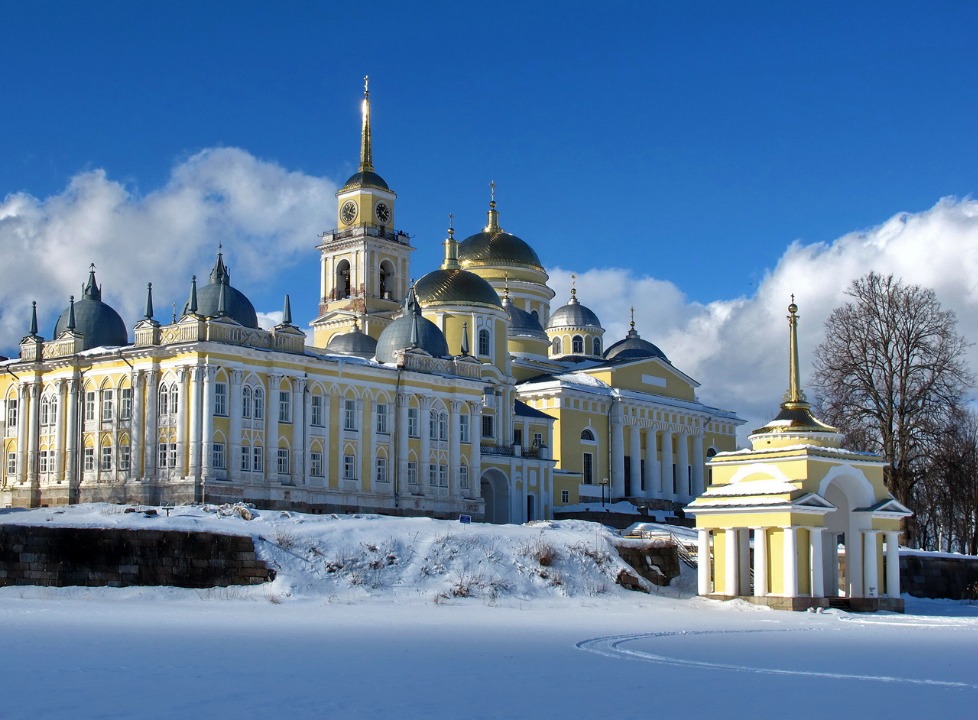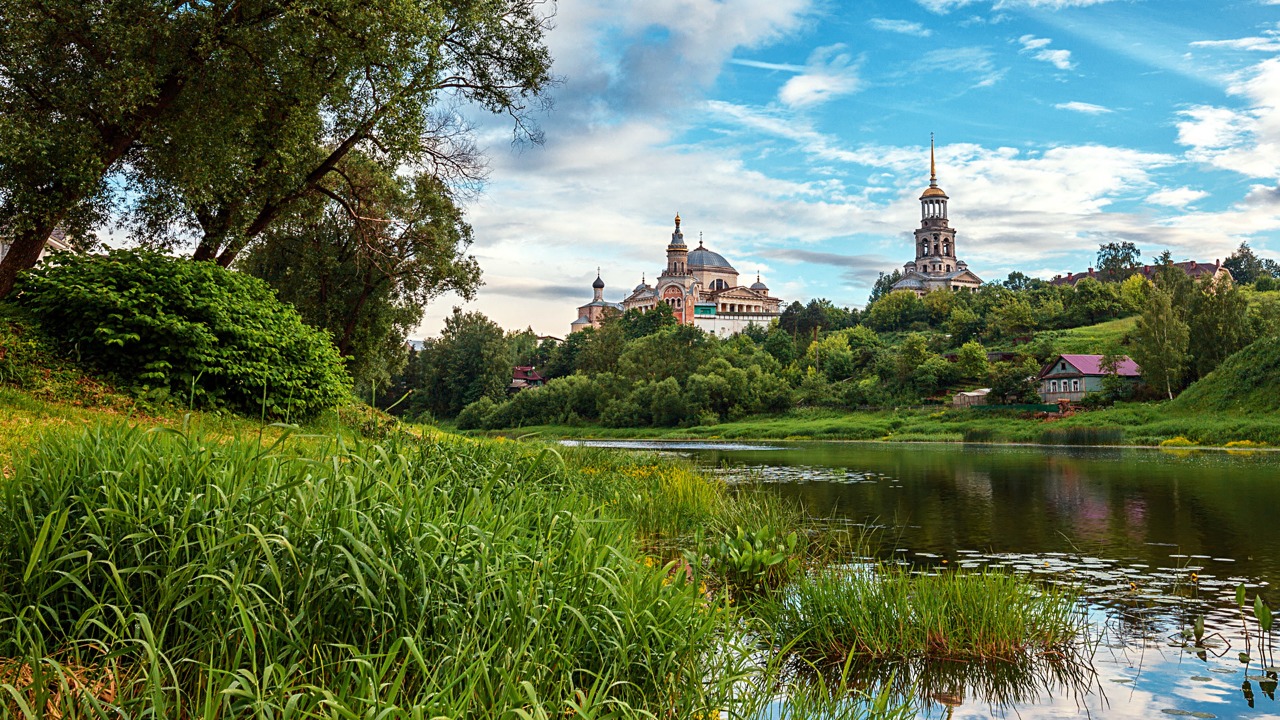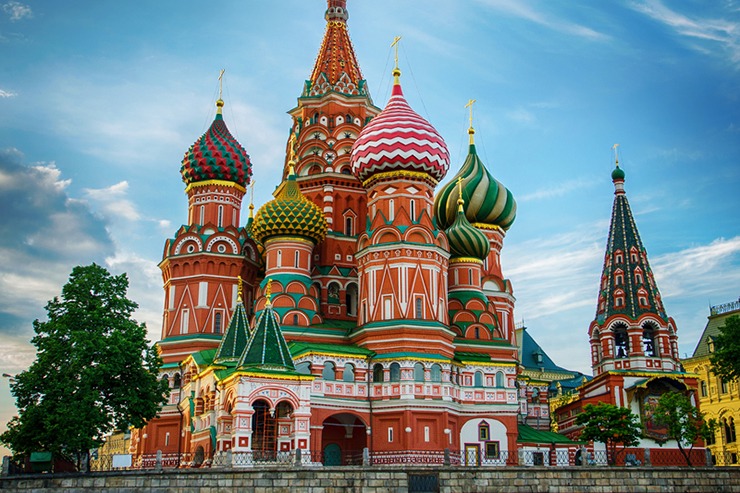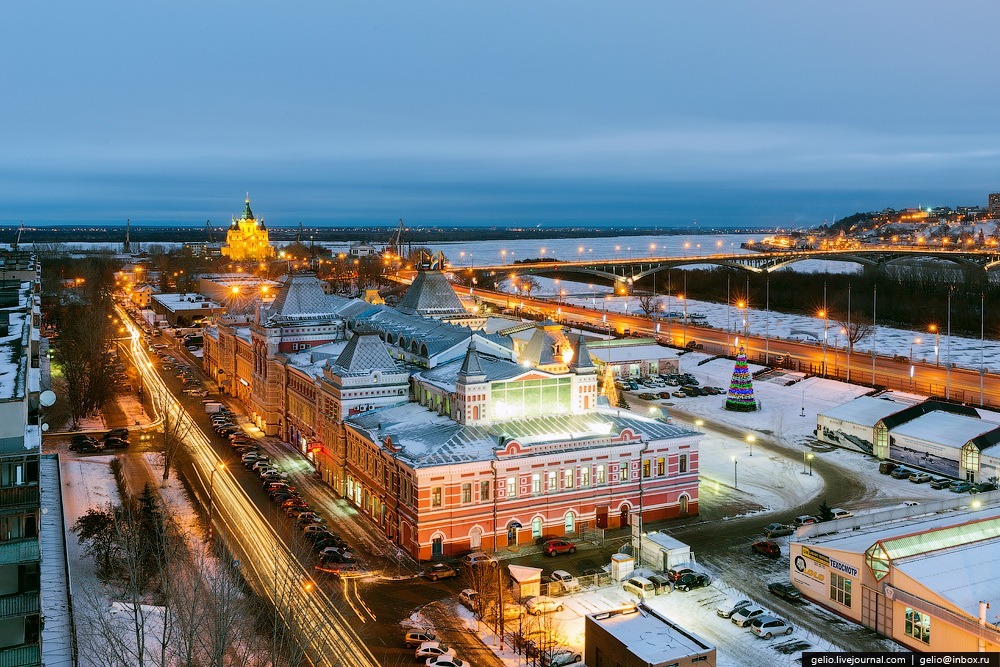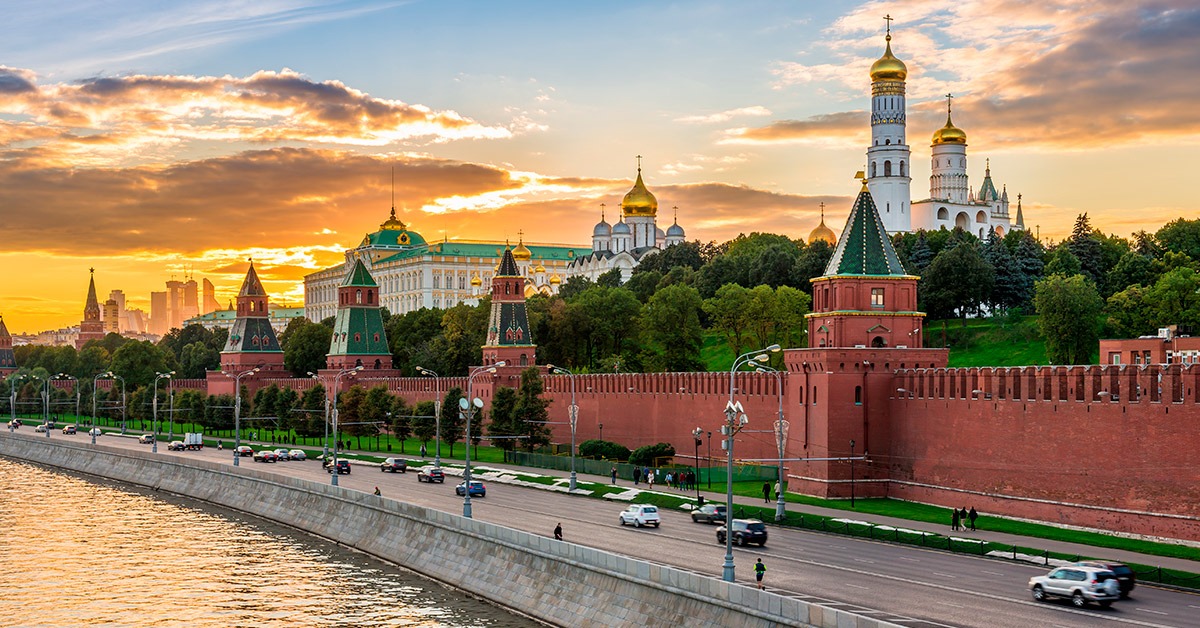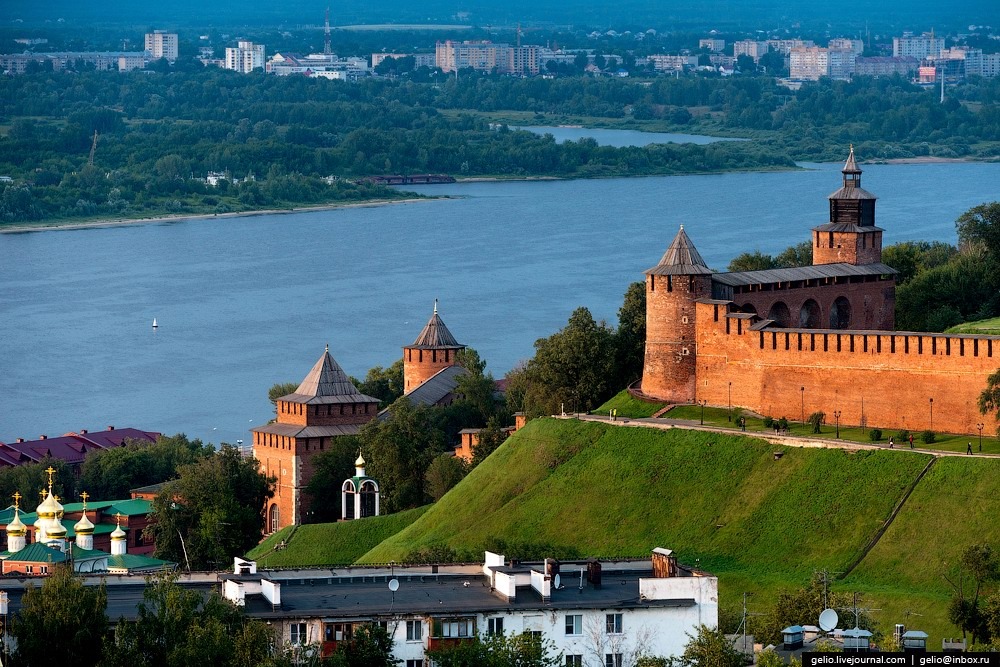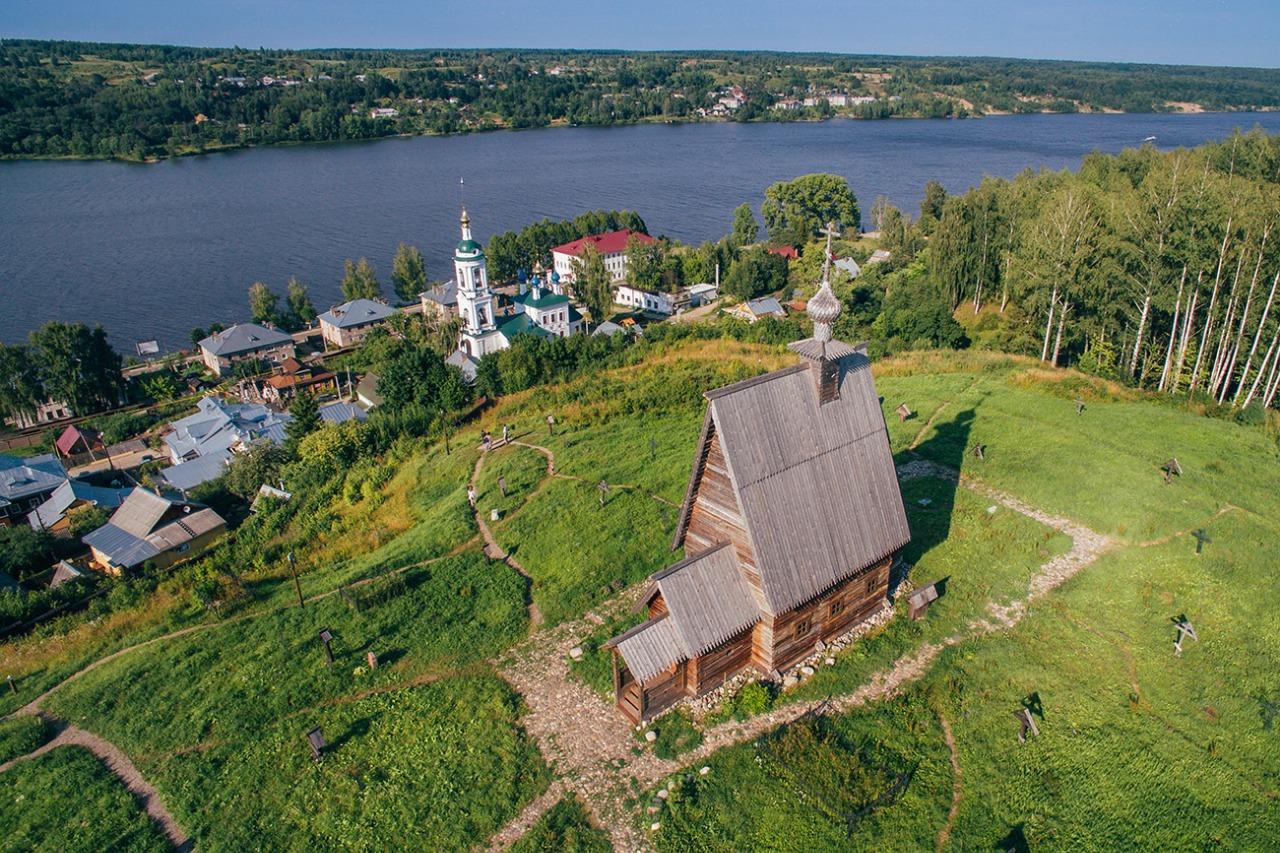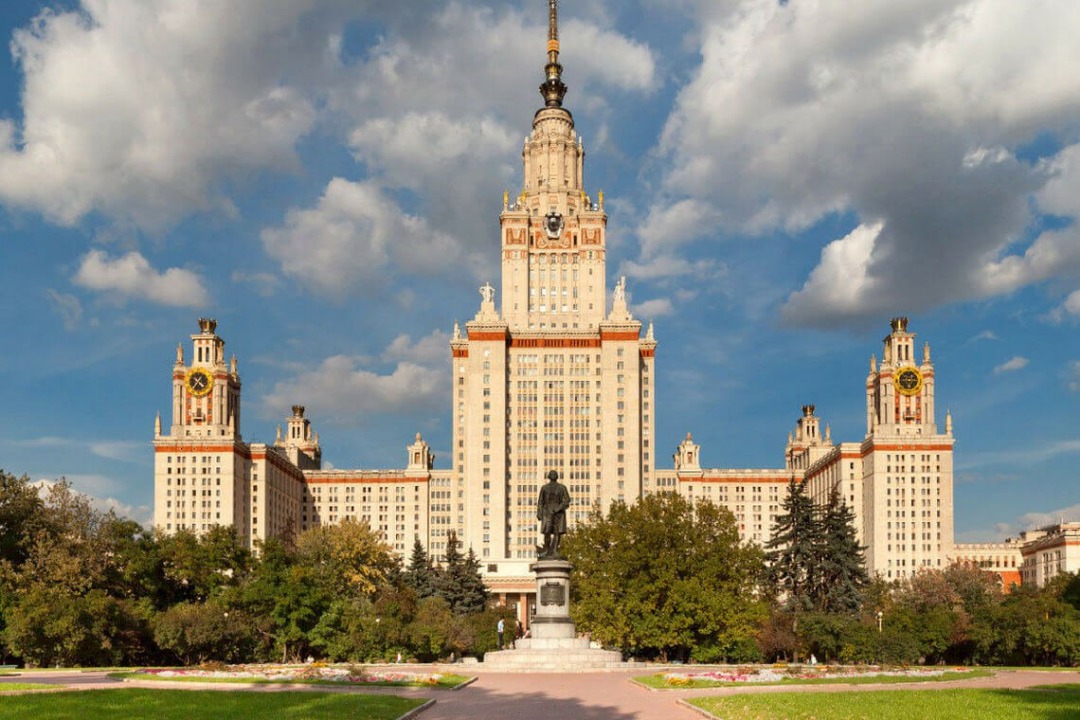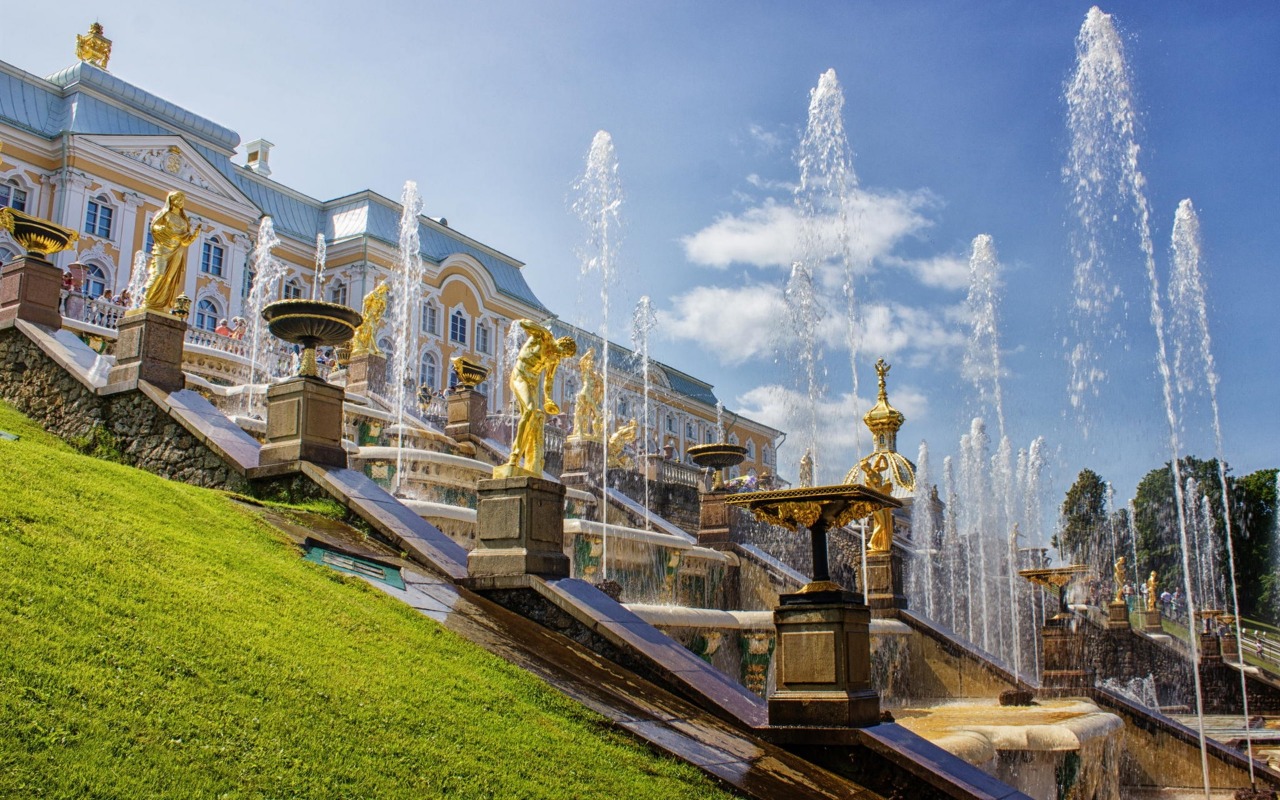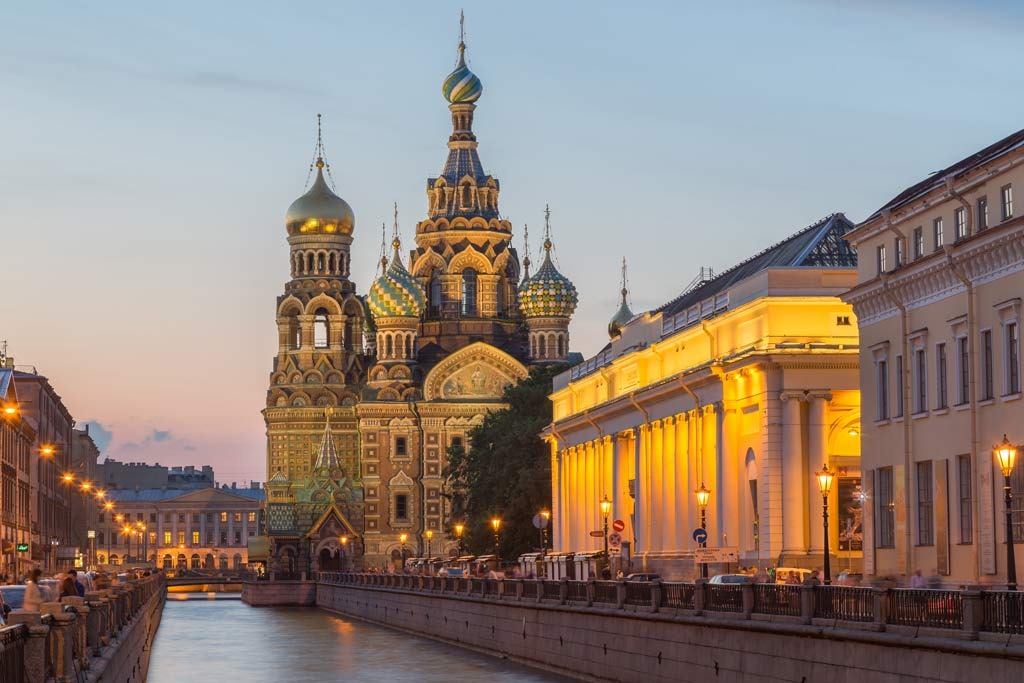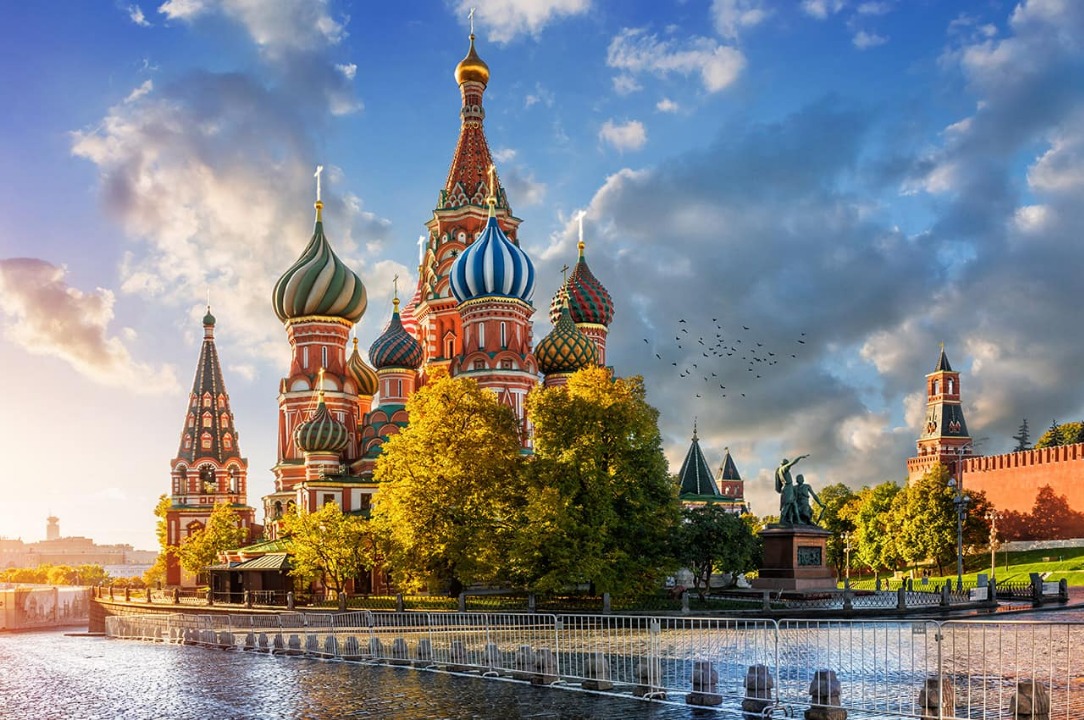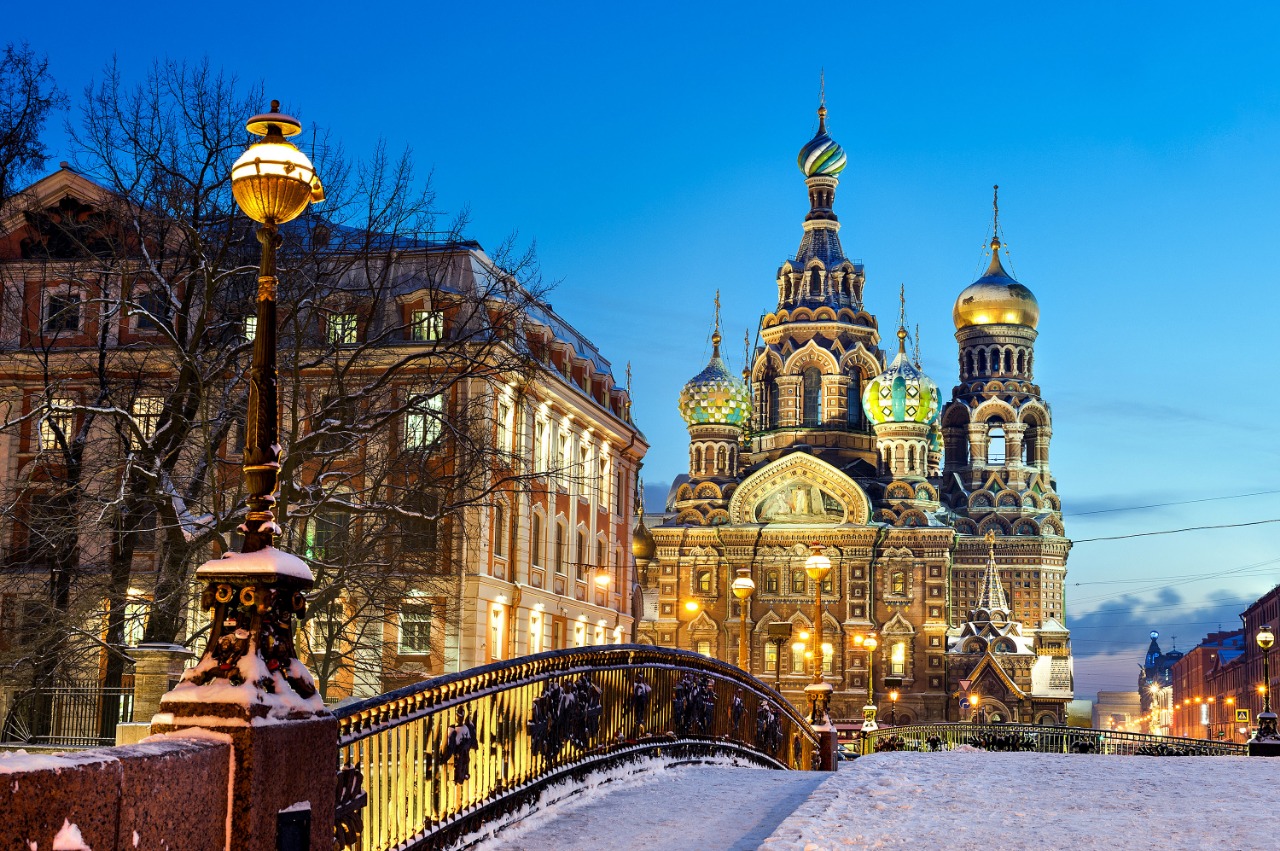Pictures of: Russia
Location map
Airports
Hotels and other Accommodation
Golf Courses
What to visit
Consulates & Embassies
World Nomads
The Travel Insurance with the largest coverage

The Travel Insurance with the largest coverage

Russia
Russia officially Russian Federation is a country located in the north of Eurasia. With 17,075,400 square kilometers, Russia is the country with the largest area of the planet, covering more than a ninth of the land area. It is also the ninth most populous country. It borders the following countries, from northwest to southeast: Norway, Finland, Estonia, Latvia, Lithuania and Poland (both through the exclave of Kaliningrad), Belarus, Ukraine, Georgia, Azerbaijan, Kazakhstan, China, Mongolia and North Korea. It also has maritime borders with Japan, the Sea of Okhotsk, and with the United States, by the Bering Strait.
Russian history begins with the Eastern Slavs, who emerged as an ethnic group recognized in Europe between the third and eighth centuries. Founded and directed by a noble class of Viking warriors and their descendants, the first Slavic State, the Principality of Kiev, emerged in the 9th century and adopted orthodox Christianity in the Byzantine Empire in 988, beginning with the synthesis of Byzantine and Slavic cultures, which eventually defined Russian culture. The principality finally disintegrated and its lands were divided into several small feudal states. The successor state of Kiev was Muscovy, which served as the main force in the Russian reunification process and in the independence struggle against the Mongolian Golden Horde. Muscovy gradually reunified the Russian principalities and came to dominate the cultural and political legacy of the Principality of Kiev. By the eighteenth century, the country had great territorial expansion through the conquest, annexation and exploration of vast areas, becoming the Russian Empire, which was the third largest empire in history, extending from Poland in Europe to Alaska , in North America.
The country established power and influence throughout the world from the days of the Russian Empire between 1721 and 1917, to become the largest and main constituent republic of the Union of Soviet Socialist Republics (USSR) between 1922 and 1991, the first and largest A constitutional socialist state, recognized as a superpower that played a decisive role after the Allied victory in World War II. The Russian Federation was created following the dissolution of the Soviet Union in 1991 but is recognized as a successor state to the USSR.
Russia is the eighth or ninth largest economy in the world by nominal GDP and the sixth largest economy in the world in purchasing power parity, with the fifth largest military budget nominal and the third largest in PPP. It is one of the five recognized nuclear weapons states in the world, as well as possessing the largest arsenal of weapons of mass destruction on the planet. Russia is a permanent member of the United Nations Security Council, a member of the G8, G20, Asia Pacific Economic Cooperation (APEC), Shanghai Cooperation Organization (OCX), EurAsEC, as well as being a prominent member of the Commonwealth of Independent States (CIS). The Russian people can boast a long tradition of excellence in all aspects of the arts and sciences, as well as a strong tradition in technology, including important achievements such as the first human space flight.
Russian history begins with the Eastern Slavs, who emerged as an ethnic group recognized in Europe between the third and eighth centuries. Founded and directed by a noble class of Viking warriors and their descendants, the first Slavic State, the Principality of Kiev, emerged in the 9th century and adopted orthodox Christianity in the Byzantine Empire in 988, beginning with the synthesis of Byzantine and Slavic cultures, which eventually defined Russian culture. The principality finally disintegrated and its lands were divided into several small feudal states. The successor state of Kiev was Muscovy, which served as the main force in the Russian reunification process and in the independence struggle against the Mongolian Golden Horde. Muscovy gradually reunified the Russian principalities and came to dominate the cultural and political legacy of the Principality of Kiev. By the eighteenth century, the country had great territorial expansion through the conquest, annexation and exploration of vast areas, becoming the Russian Empire, which was the third largest empire in history, extending from Poland in Europe to Alaska , in North America.
The country established power and influence throughout the world from the days of the Russian Empire between 1721 and 1917, to become the largest and main constituent republic of the Union of Soviet Socialist Republics (USSR) between 1922 and 1991, the first and largest A constitutional socialist state, recognized as a superpower that played a decisive role after the Allied victory in World War II. The Russian Federation was created following the dissolution of the Soviet Union in 1991 but is recognized as a successor state to the USSR.
Russia is the eighth or ninth largest economy in the world by nominal GDP and the sixth largest economy in the world in purchasing power parity, with the fifth largest military budget nominal and the third largest in PPP. It is one of the five recognized nuclear weapons states in the world, as well as possessing the largest arsenal of weapons of mass destruction on the planet. Russia is a permanent member of the United Nations Security Council, a member of the G8, G20, Asia Pacific Economic Cooperation (APEC), Shanghai Cooperation Organization (OCX), EurAsEC, as well as being a prominent member of the Commonwealth of Independent States (CIS). The Russian people can boast a long tradition of excellence in all aspects of the arts and sciences, as well as a strong tradition in technology, including important achievements such as the first human space flight.
Official language
Russian
currency
Ruble
Documentation
Entry to Russian territory requires the completion of an immigration form, usually provided by the airlines during the flight to Russia, and their delivery to the border authorities. The duplicate of the form must be kept and returned to those authorities when leaving Russia.
It is also obligatory to register the foreigners with the local delegation of the Federal Migration Service (FMS), until the seventh business day after arrival in the territory of the Russian Federation. Upon presentation of the passport and the immigration form, the registration must be done by the host entity. The hotels automatically proceed to this formality. In the case of accommodation in non-hotel entities, host entities (such as Russian / resident citizens) should register this by filling out a notification form, to be mailed to the FMS delegation at the place of stay.
Entry visas
In order to travel to Russia it is necessary to obtain a visa from the Russian Consular Posts in good time and the passport must be valid for at least six months after the expected date of the return of Russia. It is not possible to obtain a visa upon arrival. The foreign visitor must leave the Russian territory within the period indicated in the respective visa. Otherwise you can only leave the country after obtaining an extension of the respective visa and after the payment of a fine.
It is also obligatory to register the foreigners with the local delegation of the Federal Migration Service (FMS), until the seventh business day after arrival in the territory of the Russian Federation. Upon presentation of the passport and the immigration form, the registration must be done by the host entity. The hotels automatically proceed to this formality. In the case of accommodation in non-hotel entities, host entities (such as Russian / resident citizens) should register this by filling out a notification form, to be mailed to the FMS delegation at the place of stay.
Entry visas
In order to travel to Russia it is necessary to obtain a visa from the Russian Consular Posts in good time and the passport must be valid for at least six months after the expected date of the return of Russia. It is not possible to obtain a visa upon arrival. The foreign visitor must leave the Russian territory within the period indicated in the respective visa. Otherwise you can only leave the country after obtaining an extension of the respective visa and after the payment of a fine.
Tourism
The image that Russia brings of an immense icy land full of vodka drinkers is one of the most unfair stereotypes imputed to a country. If you think you're missing colors, remember the miraculous domes of St. Basil's Cathedral in Moscow or the religious icons of the Orthodox churches. Remember the movements of ballets like Kirov and Bolshoi or the enchanting melodies produced by Tchaikovsky, Shostakovich or Stravinsky. From the czars embedded in the Kremlin to some of the most beautiful and talented players on the international circuit, passing geniuses of literature such as Pushkin, Dostoevsky and Tolstoy or the creators of the addictive Tetris, much of Russia's charm comes from its own people, complex, , in his own way, very humorous.
Getting to know the largest country in the world is an odyssey full of obstacles, including the Cyrillic alphabet, a somewhat confused infrastructure, not always well-intentioned public agents, and the very extension of Russia stretching from Vladivostok to the Baltic Sea, to the Black Sea resorts.
For a very well spent week, divide between St. Petersburg and Moscow, as attractive as distinct from each other. In both there are palaces, churches, great restaurants and a busy cultural life, full of theaters and concerts of the highest level. If you have enough time and effort, discover the lakes and churches of Karelia, near the border with Finland. Venture through the 10 thousand kilometers and eight time zones of the trans-Siberian railway, witnessing from the window of the combioi landscapes that range from endless prairies to Lake Baikal.
Getting to know the largest country in the world is an odyssey full of obstacles, including the Cyrillic alphabet, a somewhat confused infrastructure, not always well-intentioned public agents, and the very extension of Russia stretching from Vladivostok to the Baltic Sea, to the Black Sea resorts.
For a very well spent week, divide between St. Petersburg and Moscow, as attractive as distinct from each other. In both there are palaces, churches, great restaurants and a busy cultural life, full of theaters and concerts of the highest level. If you have enough time and effort, discover the lakes and churches of Karelia, near the border with Finland. Venture through the 10 thousand kilometers and eight time zones of the trans-Siberian railway, witnessing from the window of the combioi landscapes that range from endless prairies to Lake Baikal.
Gastronomy
Russian cuisine derives its rich and varied character from the vast and multicultural territory of Russia. Their bases were established by the dietary habits of their rural population in often harsh climatic situations, with an abundant combination of fish, poultry and wild, mushrooms, berries, and honey. Plantations of rye, wheat, barley and corn provide the ingredients for a wide variety of breads, pancakes, cereals, kvas, beer, and vodka. Seasoned soups and stews seasoned with seasonal products or in preserves, fish and meats. All of these locally grown foods remained the raw material for the vast majority of Russians until the twentieth century. From the most extreme north point of the ancient Silk Road, passing the nearby Russian Caucasus, Persia and Ottoman Empire has provided an oriental feature to Russian cuisine.
The great expanses of Russian territory, influences, and interests from the sixteenth to the eighteenth century brought more different types of food and more refined culinary techniques. It was during this period that fish and smoked meats, pasta, vegetables and vegetables, chocolate, ice cream, wines, and alcoholic beverages were imported from abroad. At least for the urban aristocracy and nobles of the provinces, this opened the doors for the creative integration of these new foods with traditional Russian dishes. The result is an extremely varied form of techniques, seasonings and combinations.
The great expanses of Russian territory, influences, and interests from the sixteenth to the eighteenth century brought more different types of food and more refined culinary techniques. It was during this period that fish and smoked meats, pasta, vegetables and vegetables, chocolate, ice cream, wines, and alcoholic beverages were imported from abroad. At least for the urban aristocracy and nobles of the provinces, this opened the doors for the creative integration of these new foods with traditional Russian dishes. The result is an extremely varied form of techniques, seasonings and combinations.
Climate
Russia dominates almost half of Europe and one third of Asia. This factor causes Russia to have several different climates. The country is crossed by four climates: arctic, subarctic, temperate and subtropical. The seasons can be characterized like: long, snowy winter, temperate spring, short hot summer and rainy autumn. These characteristics, however, vary greatly by region.
The northernmost region of the country, called Siberia, is the coldest in the country. Winter temperatures of -40 ° C or -50 ° C are recorded, sometimes reaching -60 ° C or even less. To the south, the climate is warmer, with fields and steppes where temperatures reach -8 ° C. The cold from Siberia spreads not only throughout Russia but also throughout much of Europe and much of Asia.
In central Russia, there are the clearest, most mixed forests dominated by birches, poplars, oaks. The forests of the central zones are divided by steppes. Most steppes are plowed and sown by wheat, rye, corn, sunflower, etc.
Summer in Russia is also variable from region to region, with average temperatures of 25 ° C. In certain extreme cases, there have been days when temperatures above 45 ° C have been recorded.
The northernmost region of the country, called Siberia, is the coldest in the country. Winter temperatures of -40 ° C or -50 ° C are recorded, sometimes reaching -60 ° C or even less. To the south, the climate is warmer, with fields and steppes where temperatures reach -8 ° C. The cold from Siberia spreads not only throughout Russia but also throughout much of Europe and much of Asia.
In central Russia, there are the clearest, most mixed forests dominated by birches, poplars, oaks. The forests of the central zones are divided by steppes. Most steppes are plowed and sown by wheat, rye, corn, sunflower, etc.
Summer in Russia is also variable from region to region, with average temperatures of 25 ° C. In certain extreme cases, there have been days when temperatures above 45 ° C have been recorded.
Safety
Displacement to the North Caucasus region is not advised, which continues to have very unstable safety conditions.
Travelers are advised to remain vigilant in particular in the transport system, in public places and in places of great concentration, especially in areas where access is not controlled by the authorities.
In the city of Moscow the precautions necessary to the circulation in a great metropolis are required. In St. Petersburg small delinquency has been increasing in recent years, with the assault on tourists becoming more frequent. Travelers should pay special attention to their belongings in the main tourist areas and in the public transportation of those cities. It is not advisable to walk the foot at dawn, as well as accept drinks from strangers in places of nightlife. The cities of Moscow and St Petersburg sometimes have racially motivated crimes, a phenomenon to which other parts of the country sometimes do not escape.
There is also an increase in the number of reports of Internet fraud schemes in recent years. It is not advisable to send money to interlocutors with whom you have been contacted by Internet that are not of personal knowledge and / or of the sender's total confidence.
The loss or theft of a passport must be reported to the nearest police station before recourse to the Consular Section of the Embassy in Moscow.
Travelers are advised to remain vigilant in particular in the transport system, in public places and in places of great concentration, especially in areas where access is not controlled by the authorities.
In the city of Moscow the precautions necessary to the circulation in a great metropolis are required. In St. Petersburg small delinquency has been increasing in recent years, with the assault on tourists becoming more frequent. Travelers should pay special attention to their belongings in the main tourist areas and in the public transportation of those cities. It is not advisable to walk the foot at dawn, as well as accept drinks from strangers in places of nightlife. The cities of Moscow and St Petersburg sometimes have racially motivated crimes, a phenomenon to which other parts of the country sometimes do not escape.
There is also an increase in the number of reports of Internet fraud schemes in recent years. It is not advisable to send money to interlocutors with whom you have been contacted by Internet that are not of personal knowledge and / or of the sender's total confidence.
The loss or theft of a passport must be reported to the nearest police station before recourse to the Consular Section of the Embassy in Moscow.
Health
Piped water in Russia is not potable.
Hepatitis A and B outbreaks are common.
In all circumstances, medical insurance must be contracted at the beginning of the trip with full coverage of any medical and accident treatments. There are a number of private clinics and hospitals, some of which are international, but they are quite expensive and experts do not always speak other languages. Several pharmacies operate 24 hours a day in urban centers.
Hepatitis A and B outbreaks are common.
In all circumstances, medical insurance must be contracted at the beginning of the trip with full coverage of any medical and accident treatments. There are a number of private clinics and hospitals, some of which are international, but they are quite expensive and experts do not always speak other languages. Several pharmacies operate 24 hours a day in urban centers.
Electricity and Telecommunications
Electricity
The electricity is 220V and 50Hz.
It is advisable to have a universal adapter kit for the sockets.
Telecommunications
There are mobile communications networks and possibility to use roaming system. However, in many areas, signal capture is difficult.
The electricity is 220V and 50Hz.
It is advisable to have a universal adapter kit for the sockets.
Telecommunications
There are mobile communications networks and possibility to use roaming system. However, in many areas, signal capture is difficult.
Other tourist destinations in:
Russia
Russia
Other world tourist destinations
Why to book with FIND HOTEL ONLINE
The best prices
Our partnerships with the world´s largest operators offer research on the best market prices.
More options
At Rotas Turisticos you can book the hotel, buy the air ticket, book the transfer from the airport to the hotel and vice versa, book the local excursions, rent the car, take travel insurance and consult the places to visit and where to go.
Holiday Tips & Destinations
Hundreds of holiday destinations with all the options that allow you to easily choose the destination that best suits your dream vacation.
FIND HOTEL ONLINE
Links

